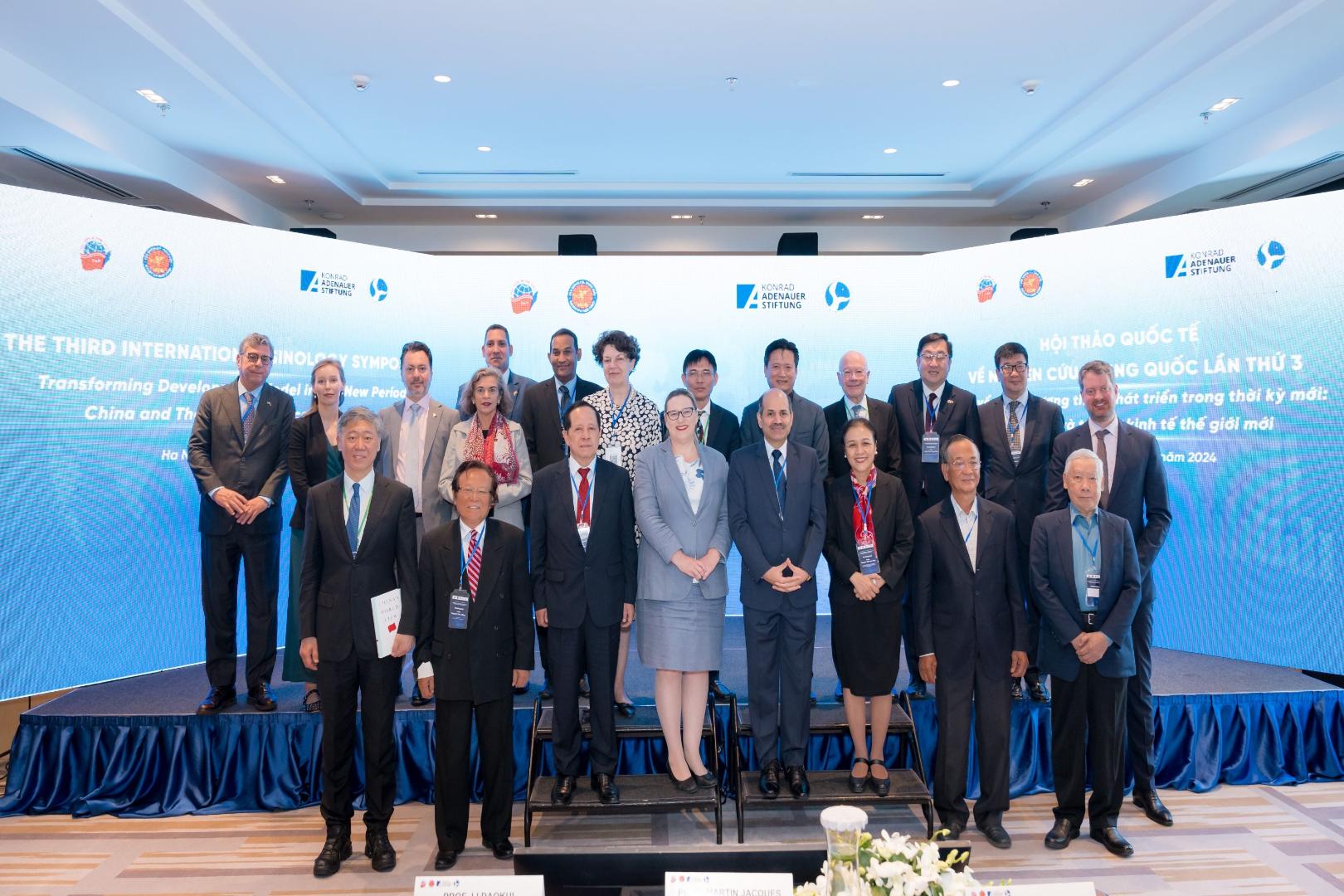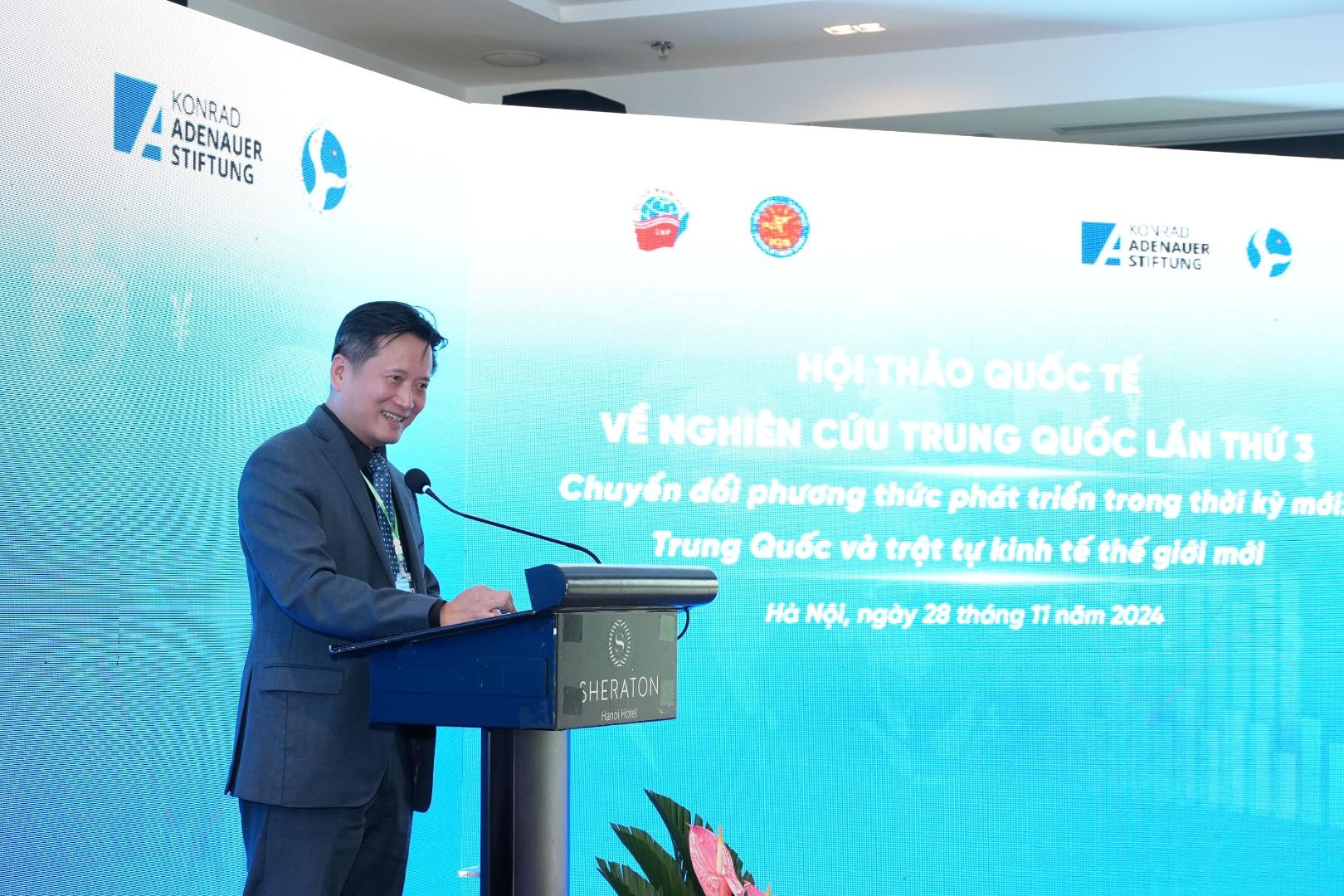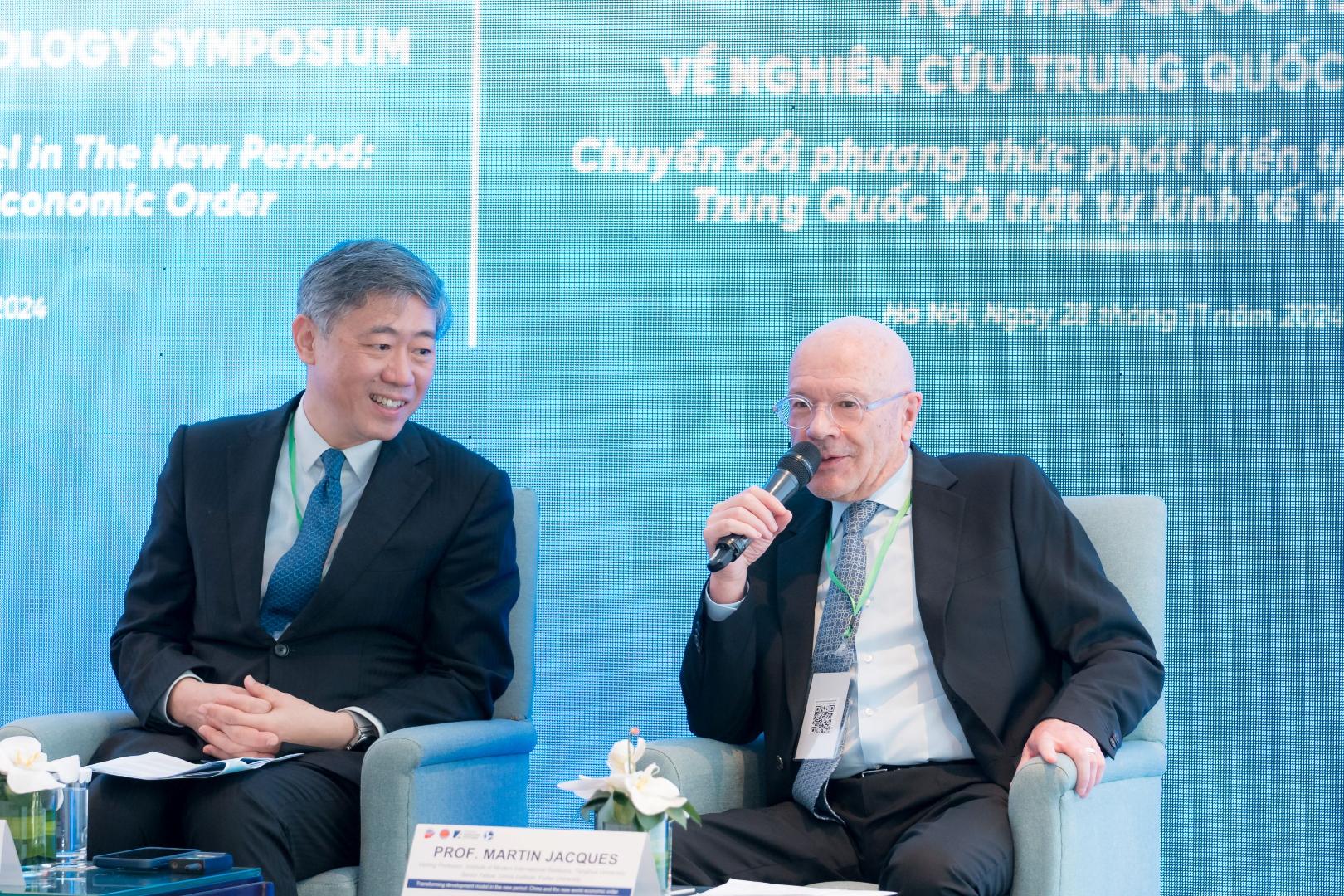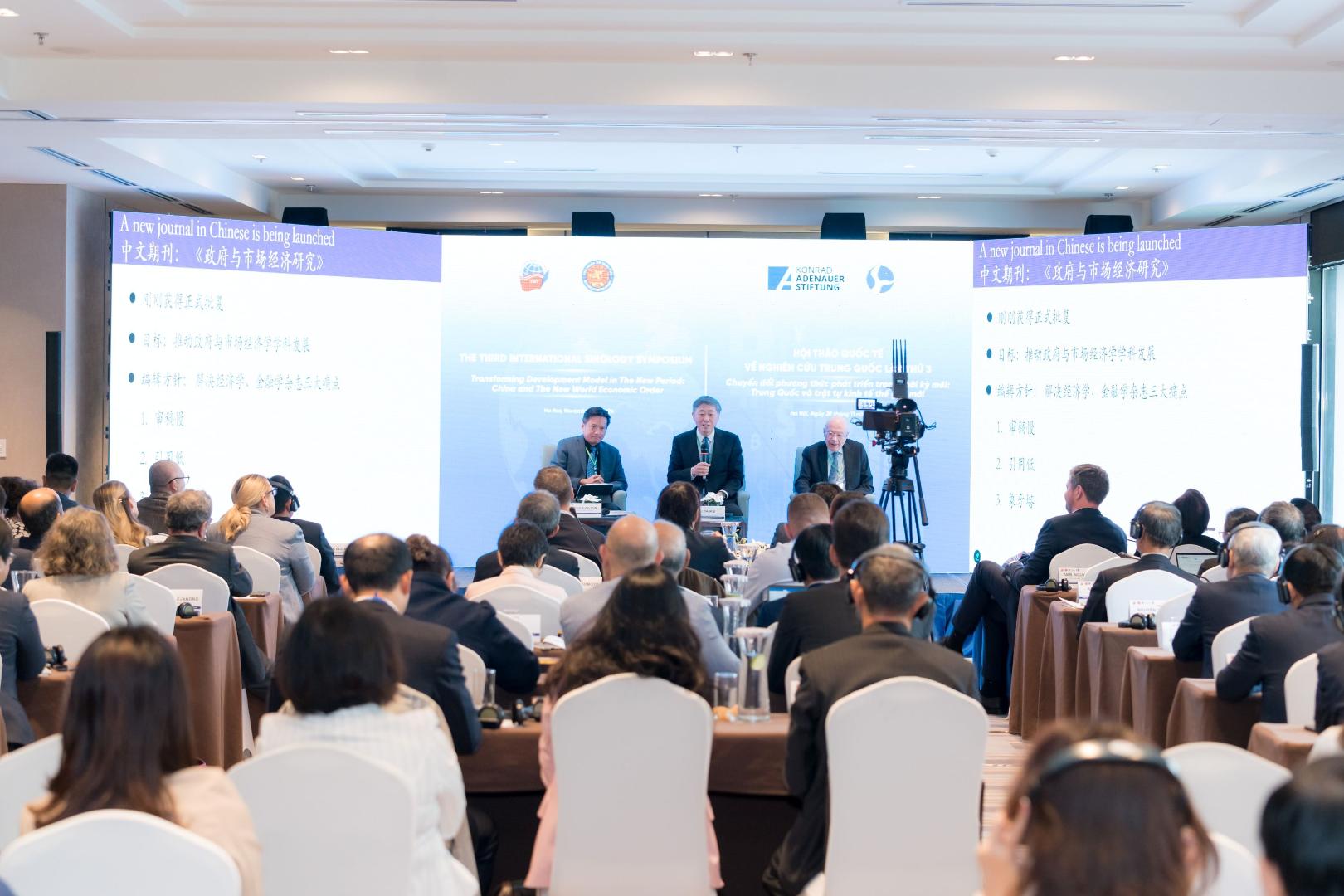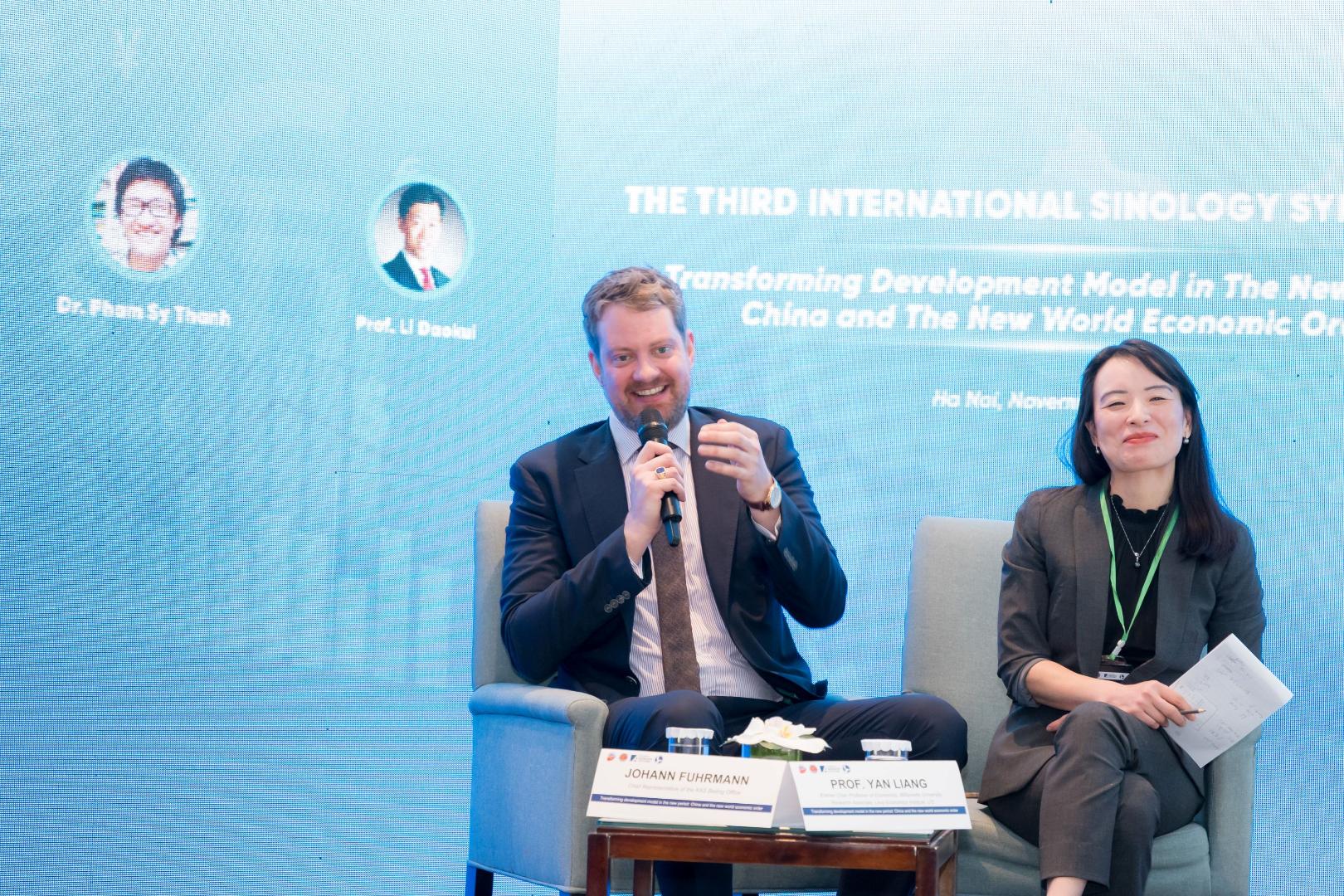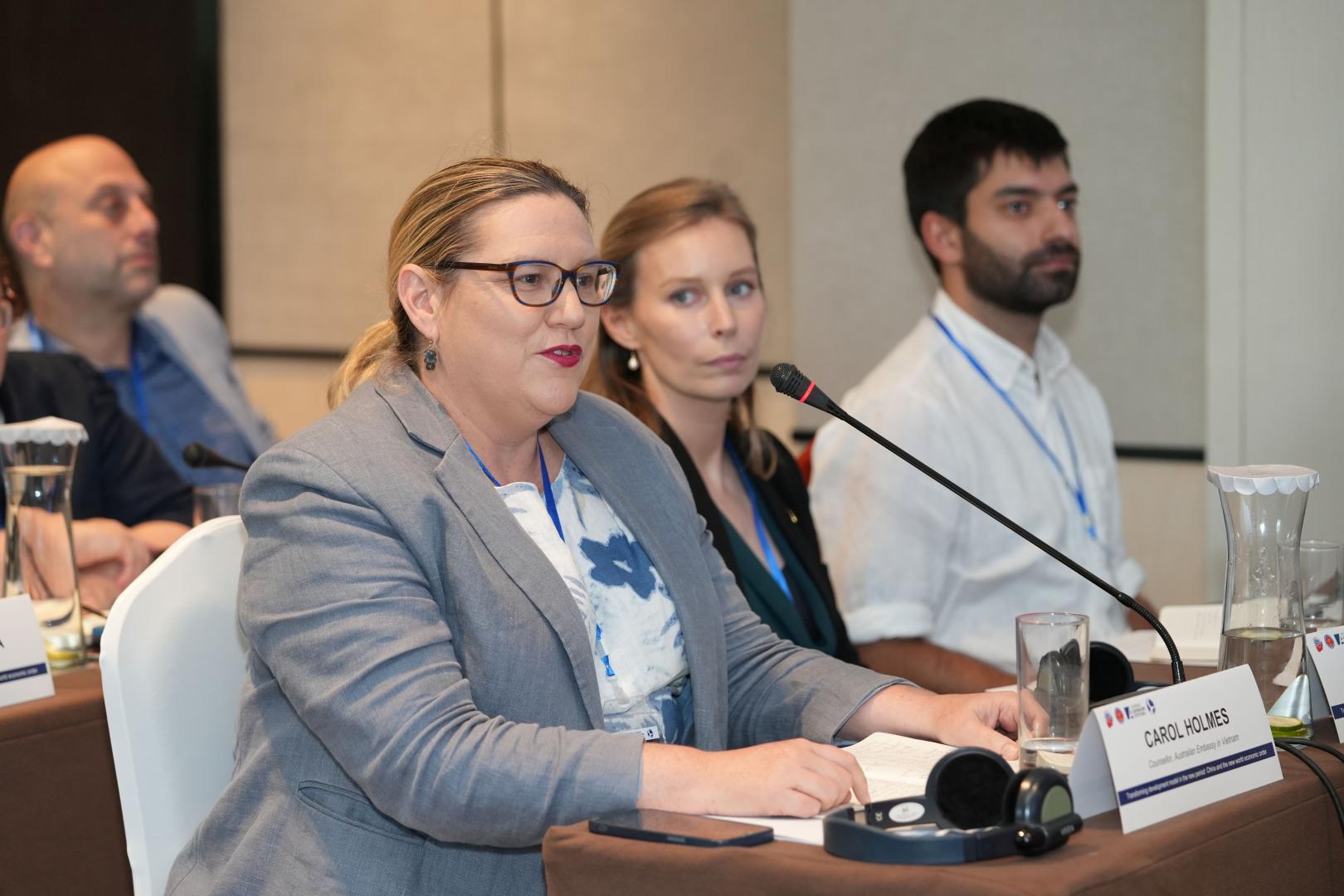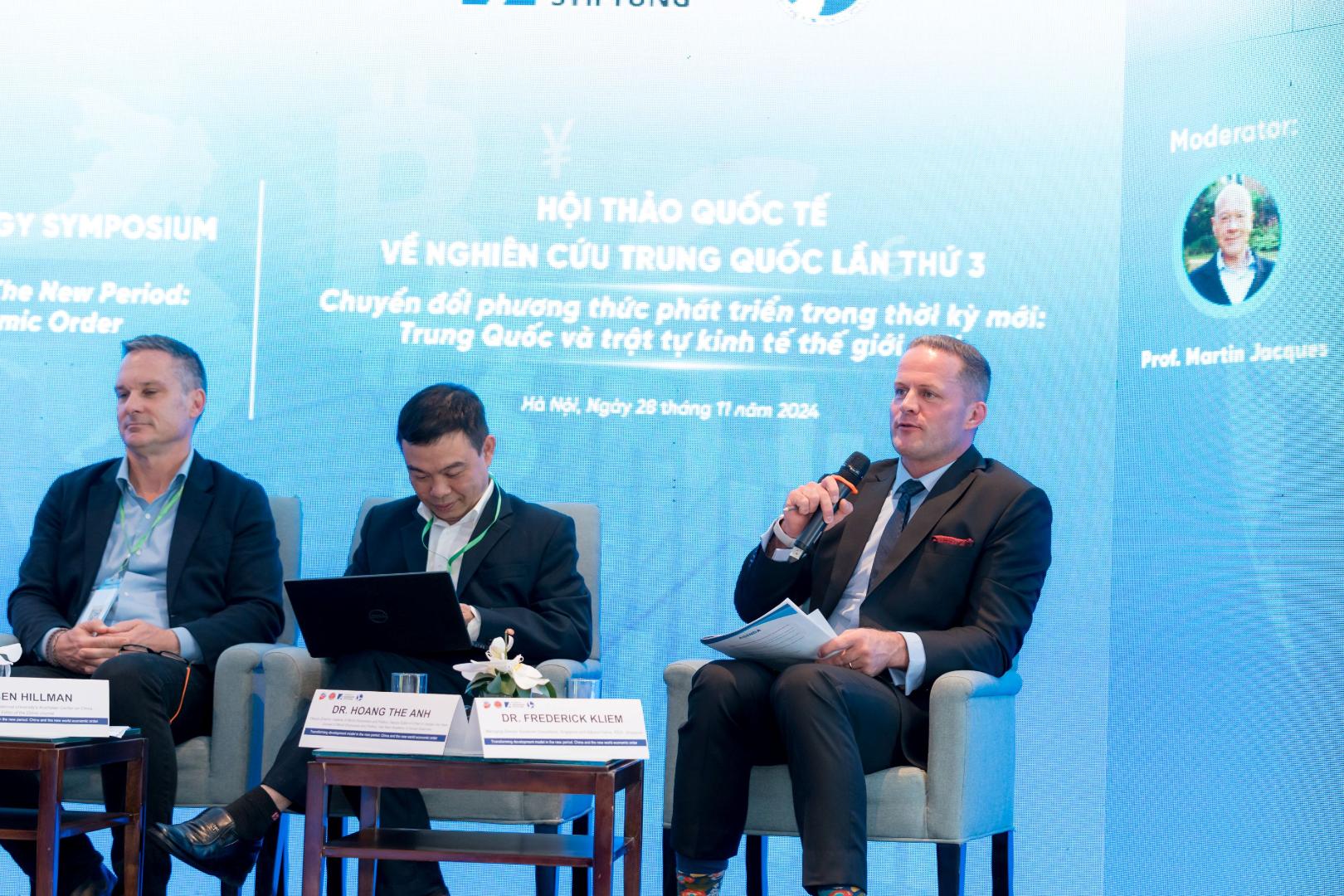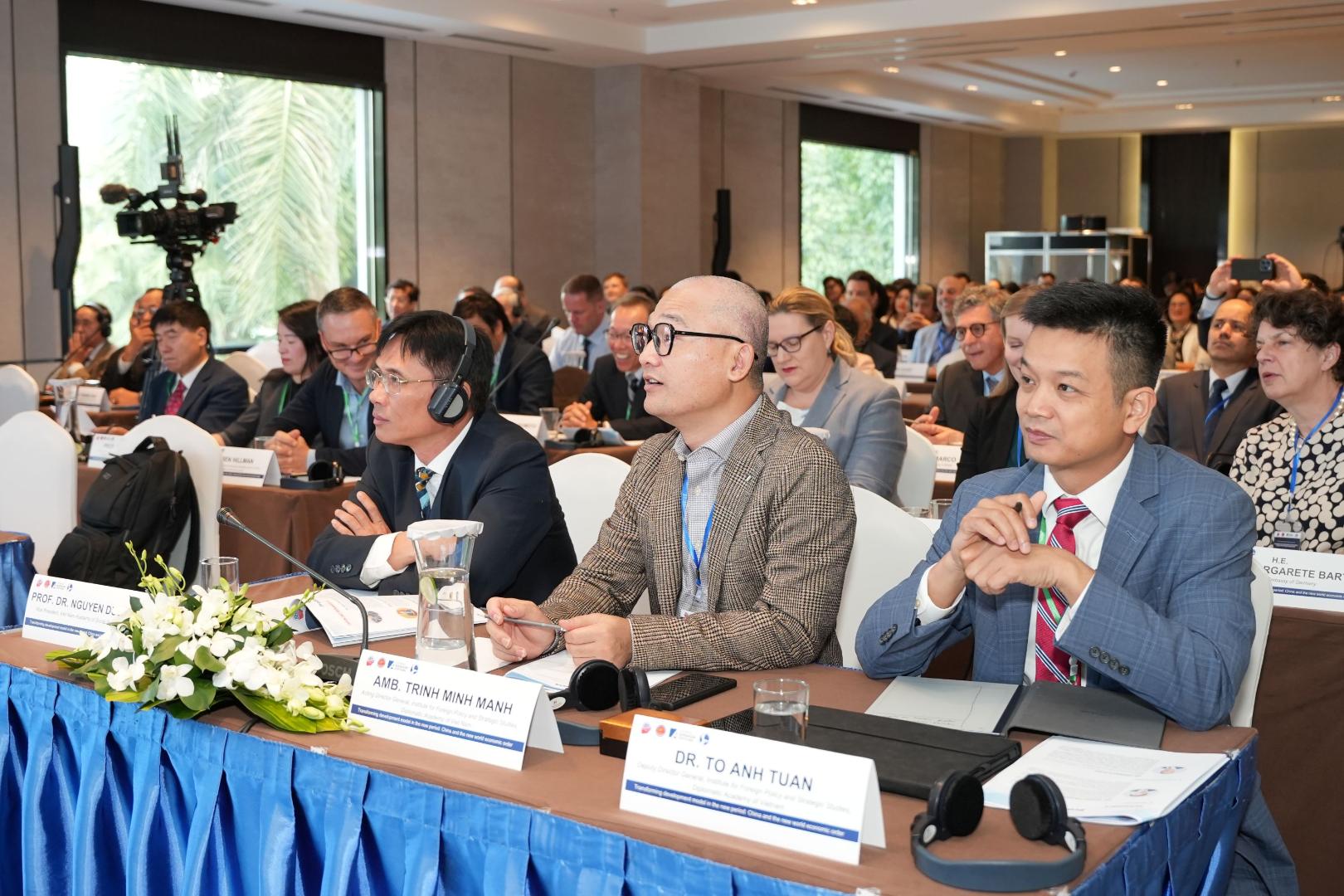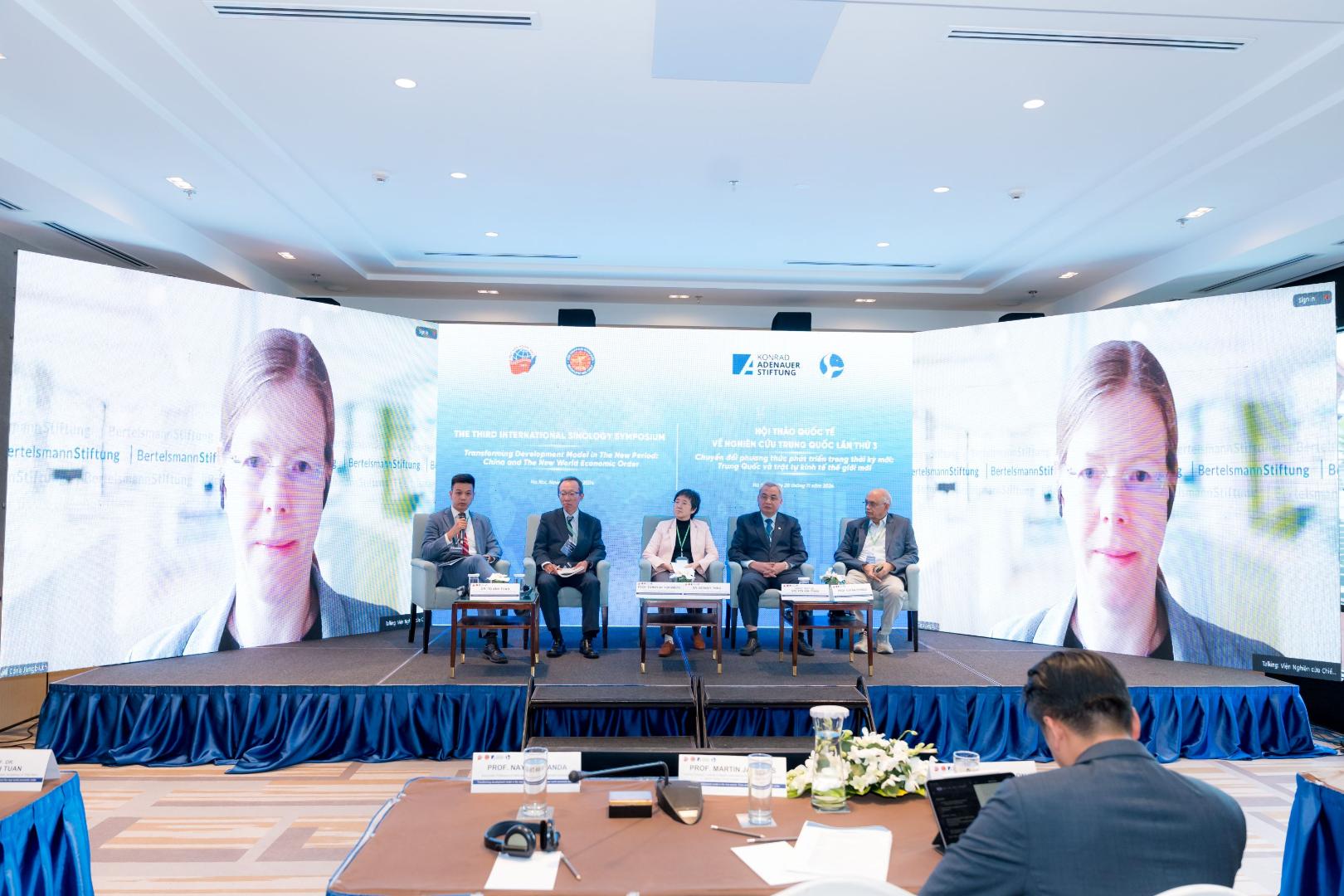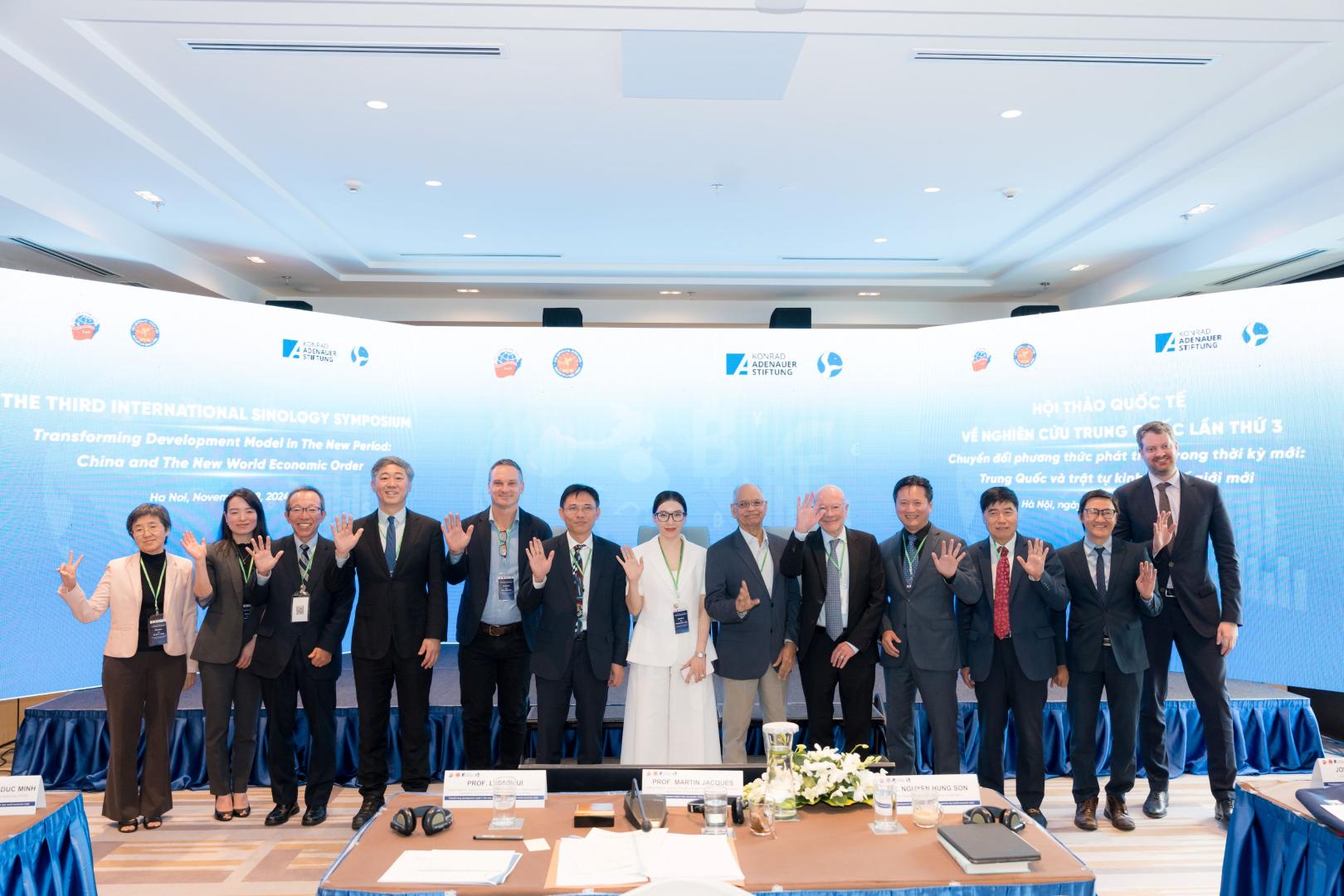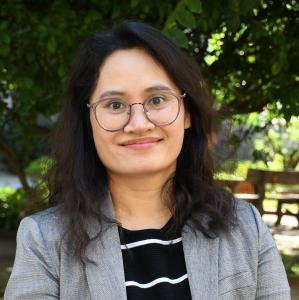Dr. Nguyen Hung Son, Vice President of DAV, opened the symposium by emphasizing the profound impact of China's development on both regional and global economies. He highlighted the symposium's role in fostering exchange and understanding of China's evolving economic development model and its broader implications.
Assoc.Prof.Dr. Nguyen Duc Minh, Vice President of VASS, elaborated on the significant changes in China's development model. He noted that as the world's second-largest economy, China's shift will deeply influence global economic growth, trade, investment, and supply chains. These changes, he added, will also shape regional security structures and the future world order.
Mr. Johann Fuhrmann, Chief Representative of KAS in Beijing, echoed these sentiments. He remarked on the critical phase the global economy is experiencing as China transitions from rapid development to high-quality growth. Mr. Fuhrmann praised the symposium for its timely and valuable discussions on China's new economic development model.
The symposium featured 11 presentations across three main sessions and one special session. Scholars engaged in candid and dynamic discussions, covering a wide range of topics from policy and implementation practices to the domestic and international impacts of China's development model. Also, German panelists Dr. Cora Jungbluth, Senior Expert for China and the Asia Pacific at the Bertelsmann Stiftung, and Dr. Frederick Kliem Managing Director of Episteme Consultants contributed significantly to the discussions. Their perspectives underscored the importance of international collaboration in understanding and navigating China's economic reforms.
The Keynote Session featured two prominent speakers: Professor Li Daokui, Director of Academic Center for Chinese Economic Practice and Thinking at Tsinghua University, and Professor Martin Jacques, author of the acclaimed book “When China Rules the World: the End of the Western World and the Birth of a New Global Order.” Professor Li Daokui shared his insights on China's current economic situation, addressing systemic issues and potential solutions to achieve the goal of becoming a high-income country by 2035. Meanwhile, Professor Martin Jacques discussed the unique aspects of China's modernization model, focusing on technological development, energy transition, and the implications for other countries.
Session 1, titled Decoding the Dynamics of China's Economy, delved into the core aspects of China's new economic reform policies. The speakers examined the context, driving forces, objectives, and challenges that China faces in its transition to a high-quality growth model. They suggested that, despite domestic challenges and a volatile international environment, the Chinese government will continue to push for comprehensive reforms, guiding all sectors of the economy to explore new development opportunities, maintain a high level of openness, and promote mutually beneficial global cooperation.
In Session 2, which focused on the current state of the Chinese economy, the speakers discussed the advantages and challenges China faces in implementing economic reforms. While China has a strong foundation from its economic achievements over the past 40 years, it is also encountering significant challenges, such as de-globalization trends, increasing strategic competition, and demographic changes.
The final session, themed Opportunities and Challenges for the Region and the World, assessed the impact of China's economic reforms on the region and the world. It particularly focused on changes in the implementation of global initiatives like the Belt and Road Initiative (BRI) and the Global Development Initiative (GDI).
The International Sinology Symposium provided a crucial platform for in-depth and comprehensive discussions on China's transformative economic models. The insights and exchanges from this event are expected to contribute significantly to the understanding of China's role in the new world economic order and its implications for global and regional economies.



